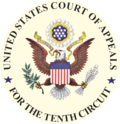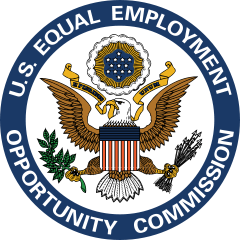 By Brad Cave
By Brad Cave
“I love you, man.” Appropriate for beer commercials but perhaps not for the workplace. A New York employer who allegedly required employees to participate in prayer circles, thank God for their job and say “I love you” to managers and co-workers faces a religious discrimination lawsuit filed recently by the Equal Employment Opportunity Commission (EEOC). The EEOC seeks compensatory and punitive damages on behalf of three employees who were fired, allegedly for opposing the required “Onionhead” practices, and a class of similarly harmed individuals. EEOC v. United Health Programs of America, No. 14-cv-3673 (E.D.N.Y. filed June 11, 2014).
Company Required “Harnessing Happiness” or “Onionhead” Practices
According to the EEOC complaint, three former employees of United Health Programs of America filed charges alleging religious discrimination in violation of Title VII because the company required employees to engage in practices under a belief system called “Harnessing Happiness” or “Onionhead.” According to the Harnessing Happiness website, Onionhead is an “incredibly pure, wise and adorable character” who “wants everyone to know how they feel and then know what to do with those feelings.” The three women claim that the company required them to participate in various Onionhead-related activities on a daily and weekly basis, including praying, reading spiritual texts, burning candles, keeping lights at work very dim, thanking God for their employment and saying “I love you” to colleagues and managers. They assert that every day, employees were asked to select Onionhead-related cards to keep next to their computers and to wear Onionhead-related pins. In addition, one of the company’s upper managers and the aunt of the company owner, “Denali,” was the leader of the Onionhead practices and allegedly would require employees to attend one-on-one sessions with her in order to read and discuss books about “divine plans,” “moral codes” and “enlightenment.”
Fired – Allegedly for Opposing Onionhead Practices
Each of the three Charging Parties, Elizabeth Ontaneda, Francine Pennisi and Faith Pabon, were allegedly fired for objecting to the Onionhead practices. Pennisi, an Account Manager and IT Project Manager, spoke up at a managers’ meeting in July 2010, stating that she was Catholic and did not want to participate in the Onionhead activities. Ontaneda, a Senior Accounting Manager for Customer Service, also spoke up at the meeting, saying she felt the same way. A few weeks later, both women were relocated to work in an open area on the customer service floor, rather than in their offices, and their duties were changed to require answering phones. Denali placed a large statue of Buddha in Pennisi’s empty office. Denali also spoke of “demons” in connection with Ontaneda’s and Pennisi’s resistance to Onionhead practices. The day after losing their offices, the women called in sick and were terminated by the company owner by phone and voicemail.
Pabon, a Customer Care Consultant, attended a spa weekend in Connecticut with Denali and about 20 other customer service employees. Pabon alleges that Denali stated that the purpose of the trip was spiritual enlightenment and that they were to be together at all times, holding hands, praying and chanting. Pabon refused to participate in some of the group activities and on Monday following the spa weekend, Denali fired Pabon for “insubordination.”
Hostile Work Environment, Failure to Accommodate and Retaliation
The EEOC asserts numerous religious discrimination claims against the company, including creating a hostile work environment based on religion, failure to accommodate the employees’ own religious beliefs or lack thereof, terminating employees based on religion and retaliating against employees for opposing the required Onionhead practices in the workplace. The EEOC also alleges that some employees were constructively discharged when they felt compelled to leave the company to avoid participating in the required Onionhead activities.
Reports suggest that the company denies any merit to the lawsuit and that they expect it to be dismissed. We don’t yet know the basis of their defense and must remember that at present, the allegations are unproven. It will be an interesting case to follow. We will keep you posted as it proceeds through the court






